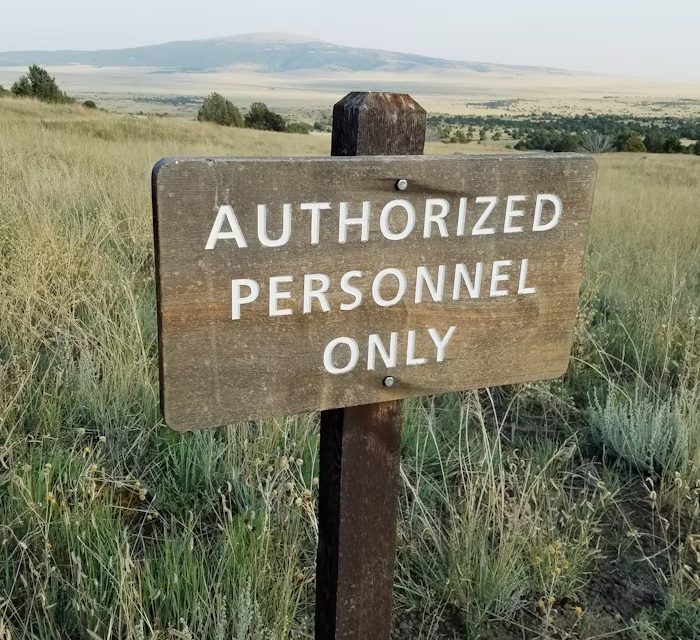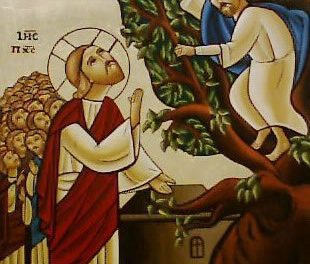First Reading – Deuteronomy 18:15-20
Responsorial Psalm – Psalm 95:1-2, 6-7, 7-9
Second Reading – 1 Corinthians 7:32-35
The readings for today are all about authority. (Notably recalling some of the questions raised by our most recent guest post from Catherin Moon.)
In the first reading, for instance, Moses assures the people that God will provide a “prophet like me” after he is gone and insists that this prophet will have influence and authority because God promises to “put my words into his mouth.”
In the Gospel, meanwhile, Mark describes the very start of Jesus’ ministry and notes that his audience was “astonished” by his teaching, “for he taught them as one having authority.” There is, of course, a connection between the first reading and the Gospel here, as Jesus speaks with a prophetic authority in the name of God. This is precisely what the man with the unclean spirit identifies, when that spirit proclaims, “I know who you are—the Holy One of God!”
The question of authority is a striking one for us today, as we live in a time when authority—at least as it is traditionally defined—is less secure than ever. Institutions, once viewed as a source of authority, receive less and less trust every year, especially in the U.S. context. Expertise, earned through academic credentials or experiential work is regularly contested, to the point that there are different views of what constitutes expertise in different spheres of our polarized landscape, and plenty of places where there are assumed to be no “experts” worth listening to at all.
In the midst of this reality, it is both appealing to think about the level of authority described in this week’s readings and impossible to imagine how one could ever encounter that strength of assurance.
The readings do more than provide a quaint view of an old-fashioned type of authority that is no longer accessible to us, though. They actually point toward a solution to our crisis of authority. Contained within them is an implicit distinction between what it means to have authority and what it means to be recognized for authority.
This distinction reminds me of the different types of authority recognized in the system of casuistry. Often derided as a relativistic form of rationalizing (thank you, Blaise Pascal!), casuistry was originally introduced as a way of thinking critically about ethical responsibilities in new situations. For instance, as shipping commerce flourished in the Middle Ages, was it licit to buy and sell insurance (since the premise behind making money on insurance was that you were selling a product you didn’t want your buyer to use)?
As Albert Jonsen and Stephen Toulmin’s excellent book, The Abuse of Casuistry: A History of Moral Reasoning, has shown, this system offered a highly developed process of moral analysis, and one of the crucial questions was what constituted “authority” during this period. After all, if multiple moralists reviewed the question of insurance but gave opposite answers, what was a young sea captain to do?
To help answer this question, casuistry argued that individuals should weigh the different levels of authority behind the competing claims. In the process, casuistry proposed two types of authority.
First, casuists described “external” authority as the weight provided by the role or office that someone held. Thus, a bishop’s opinion had a high level of external authority because it came from a bishop, someone who has teaching responsibility for a specific diocese. This is the traditional type of authority that we think about through institutions and expertise. Here we are talking about those who “have” authority because it has been “given” to them by someone else or through an existing structure.
Second, casuists also understood a category of “internal” authority, which was the weight provided by the logical coherence and persuasiveness of an argument on its own terms. Thus, someone might not have a position of authority, but they might be a very holy and wise person who gives good counsel. They do not have the traditional markings of (external) authority, but they might still make excellent—or even better—arguments that deserve attention for their insight. These are the people we recognize as authorities for what they say and do, rather than assuming they have authority given to them by someone (or something) else.
Notably, the Venn diagram connecting these two types of authority is not two unconnected circles; there is overlap between the two categories. Jesus in this Sunday’s Gospel is a prime example: he both has authority because he speaks on behalf of the Father (and is the Son of God) and is recognized as an authority because of the way he acts in the world.
There is, then, a call for us to spend less time worrying about how to “get” authority and more time acting in such a way that we can be “recognized” as an authority in the Christian life. St. Paul’s exhortation in the second reading shows how this might be done, inviting all Christians to live with a single-minded devotion to God, a way of life that will lead to a recognition of authority even for those who not in a position of authority.
As Pope Paul VI famously explained, “Modern man listens more willingly to witnesses than to teachers, and if he does listen to teachers, it is because they are witnesses” (Evangelii Nuntiandi, no. 41).
Those who have been baptized and joined through anointing in Christ’s mission as “priest, prophet, and king,” have a responsibility to embody this observation, leading a life that allows others to recognize the authority of our Gospel witness regardless of the level of external authority we may—or may not—have. If we do, we can be part of the solution to our contemporary crisis of authority, rather than contributors to it.





